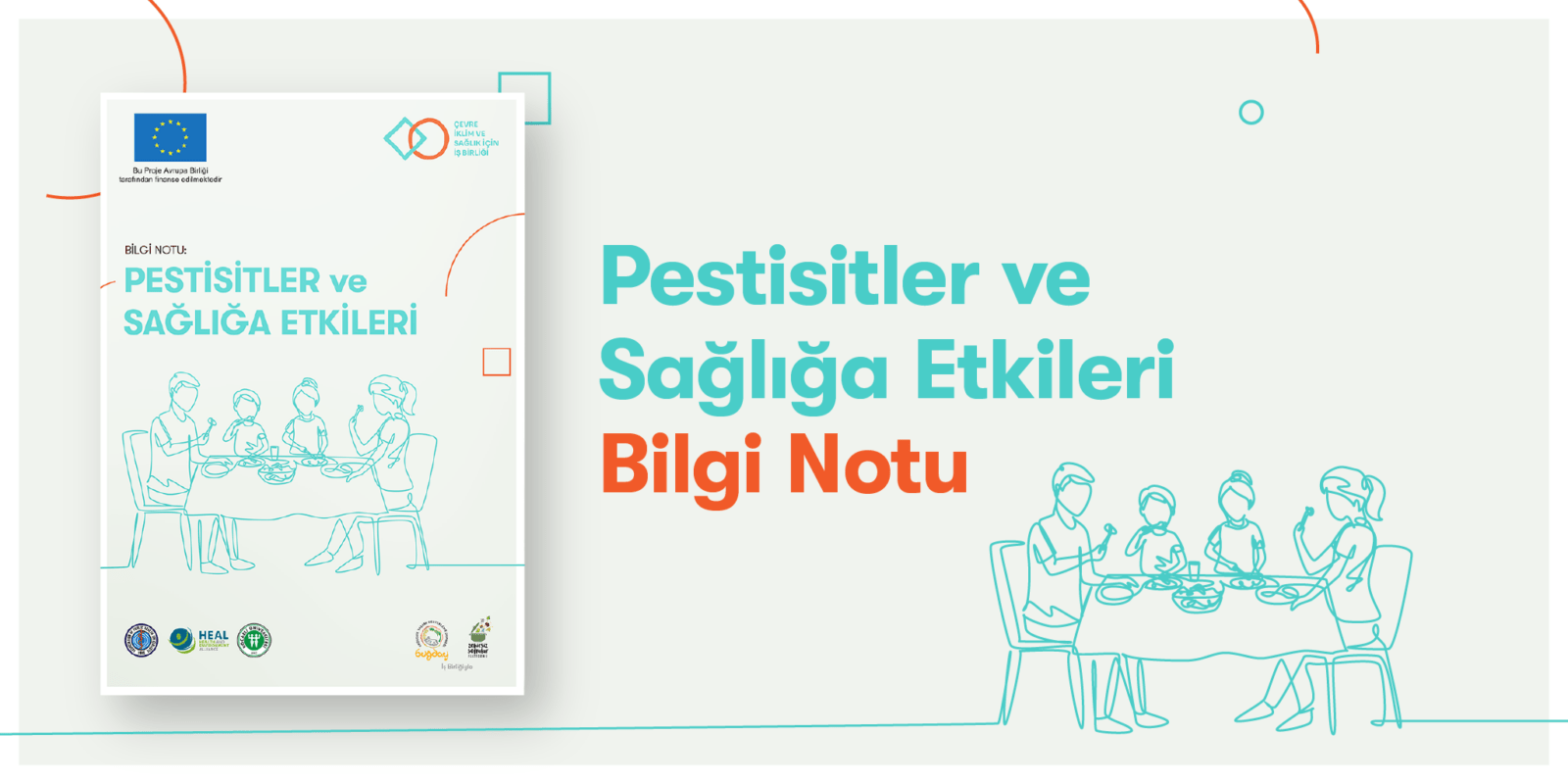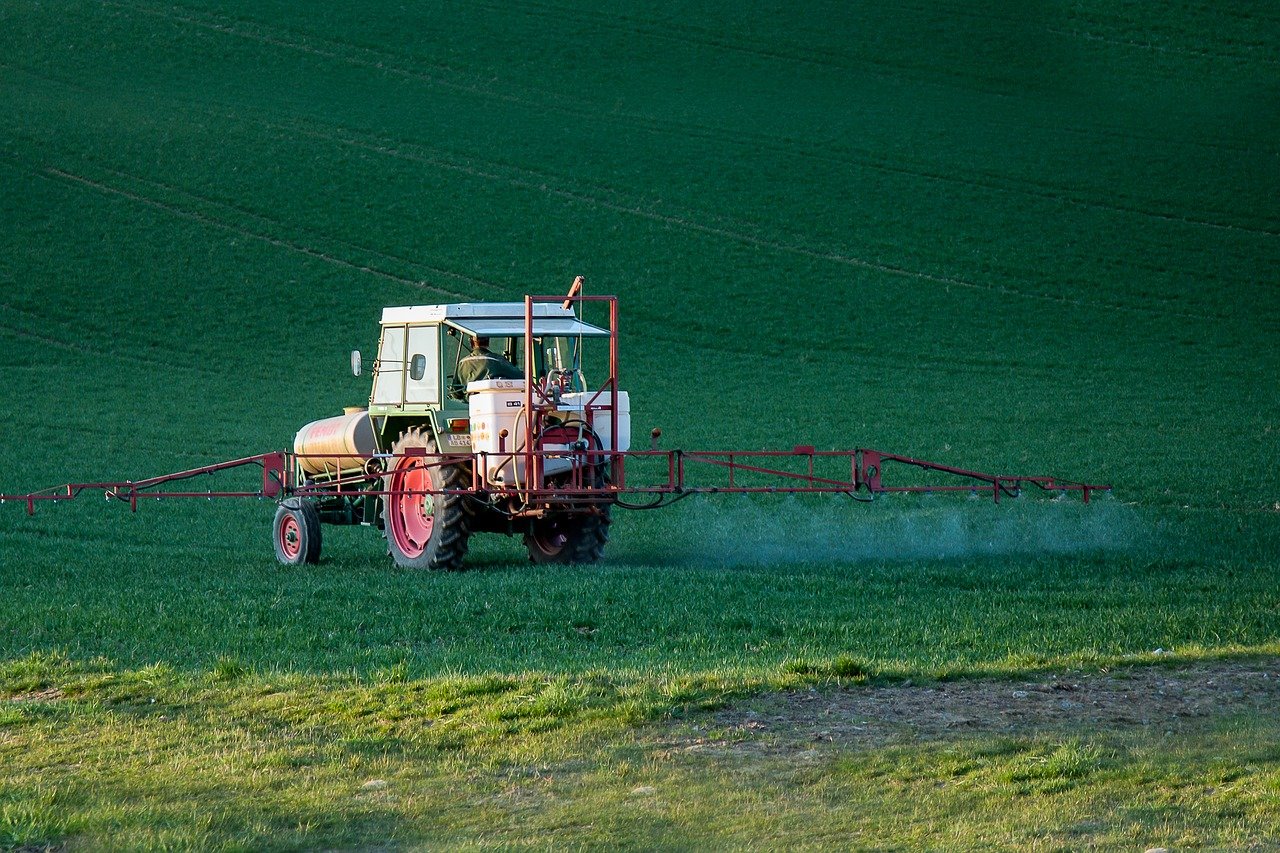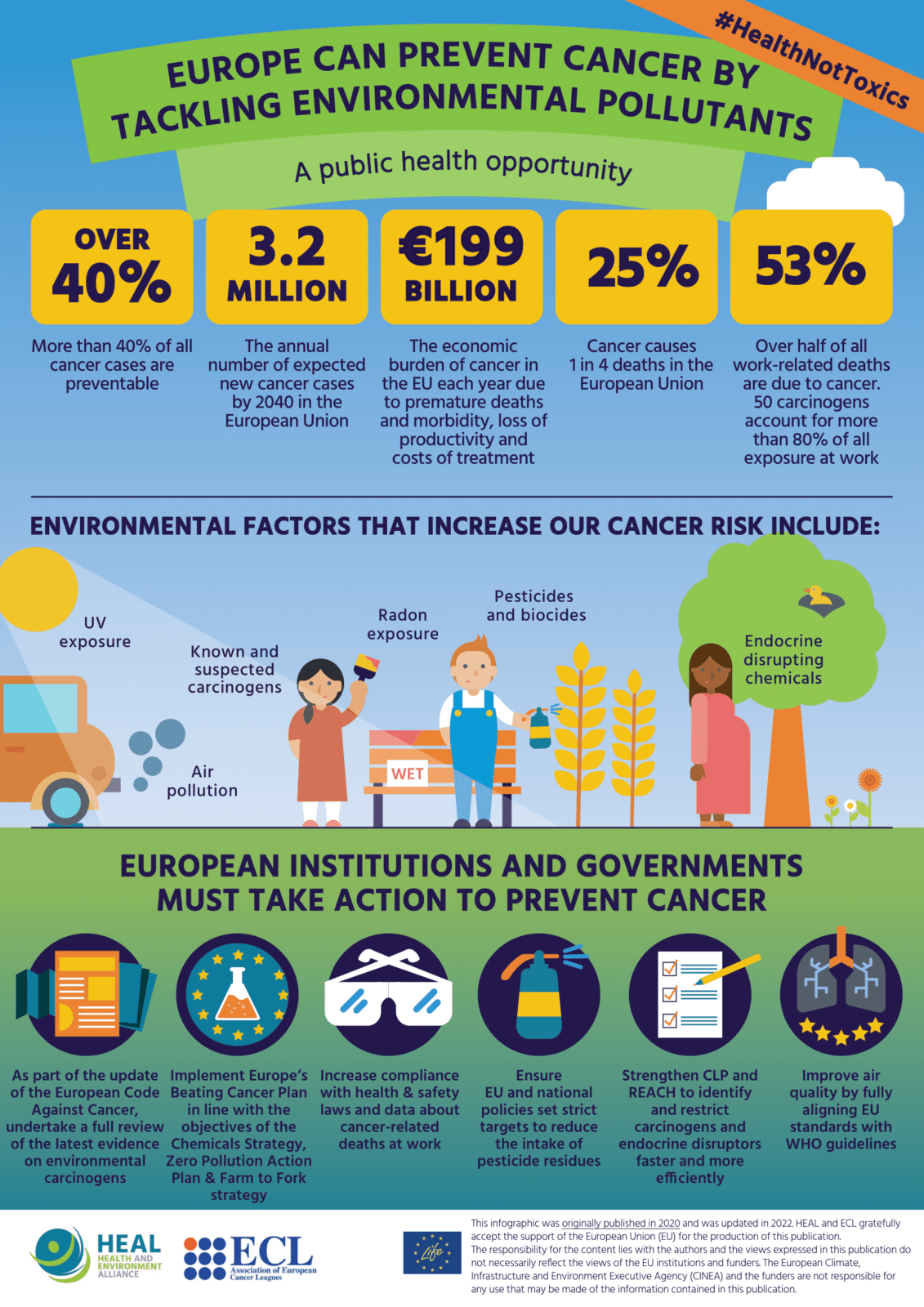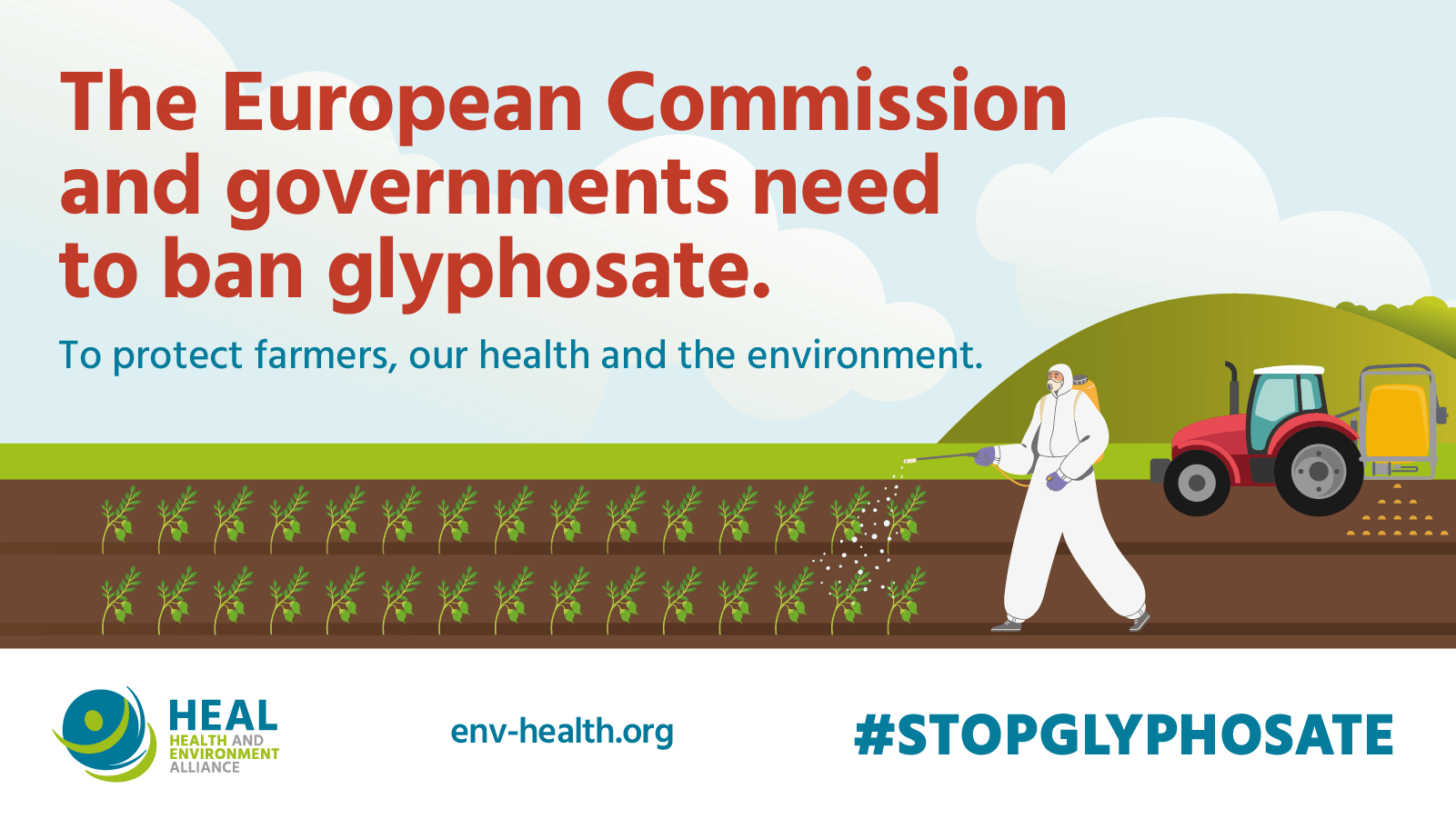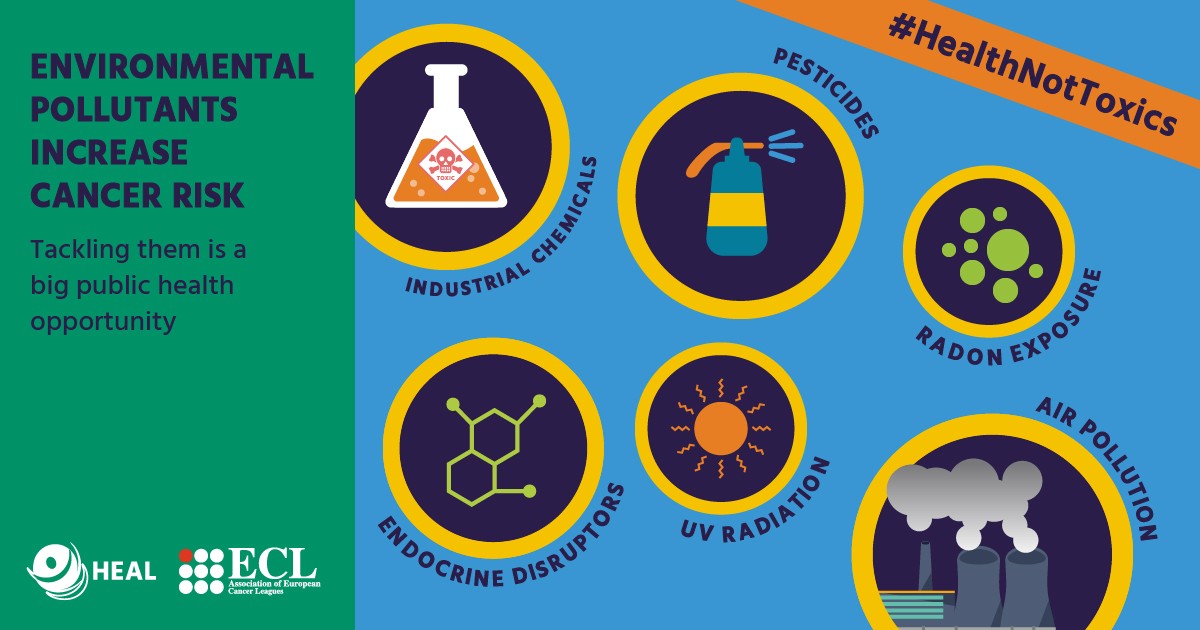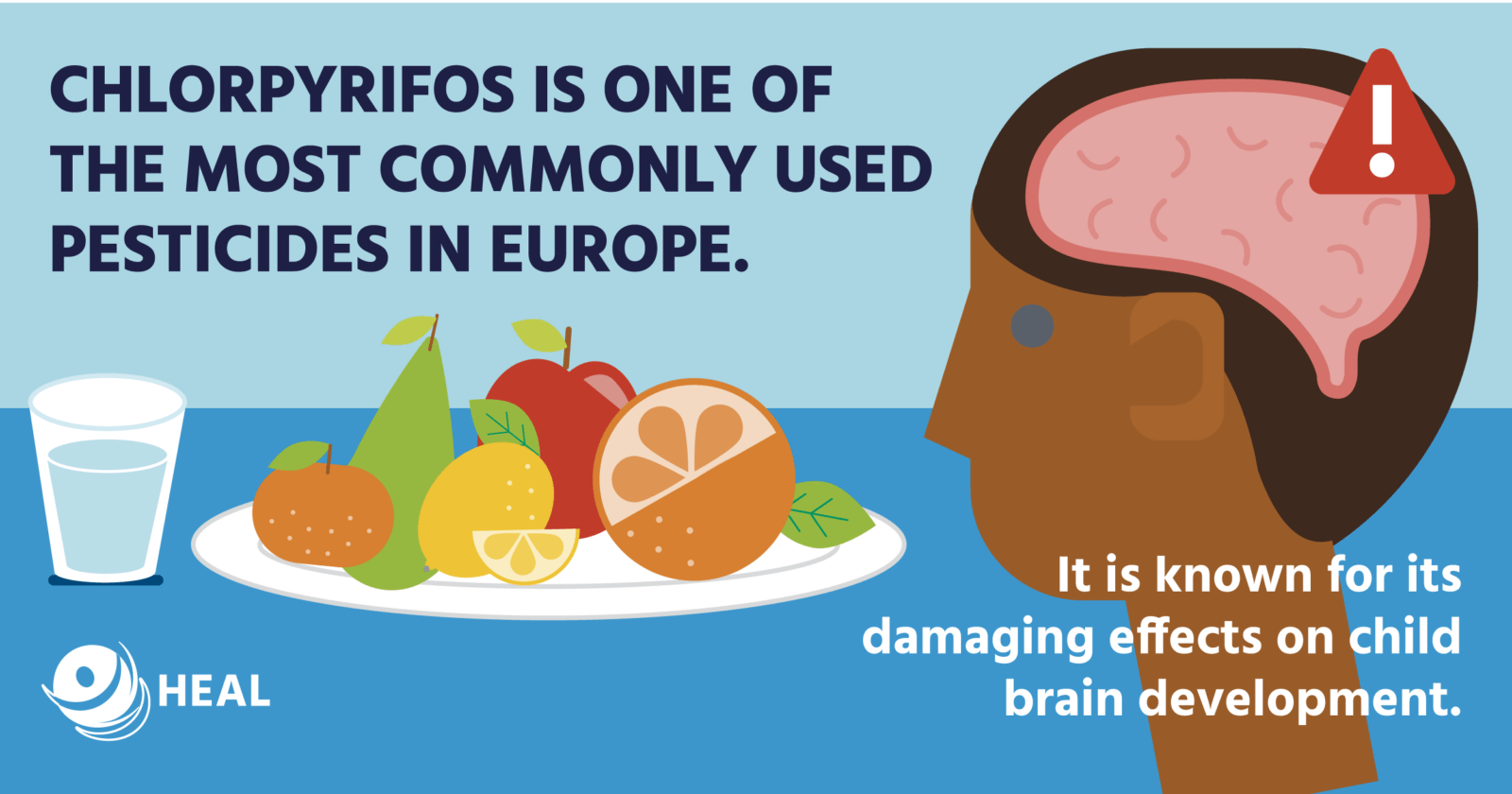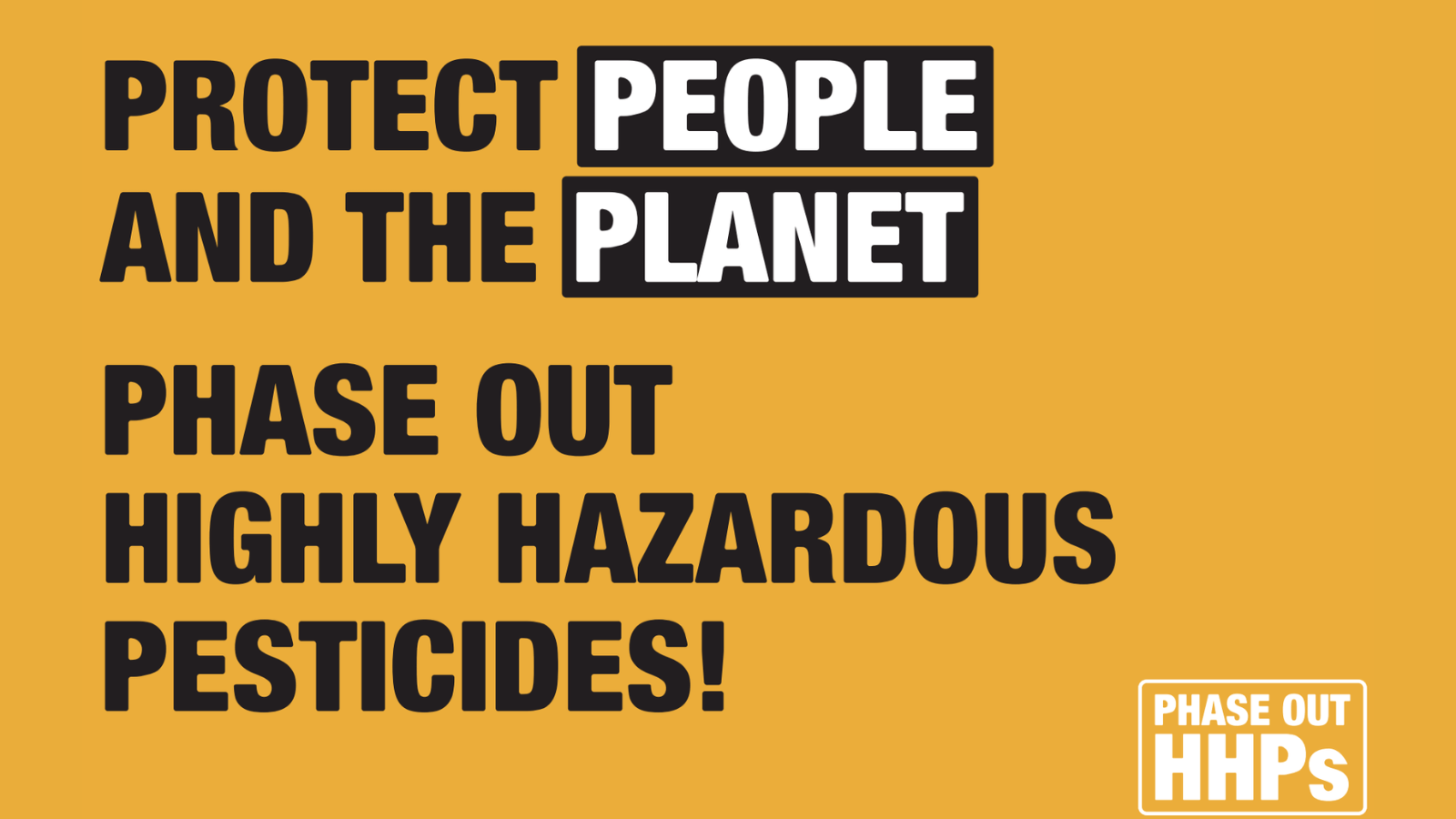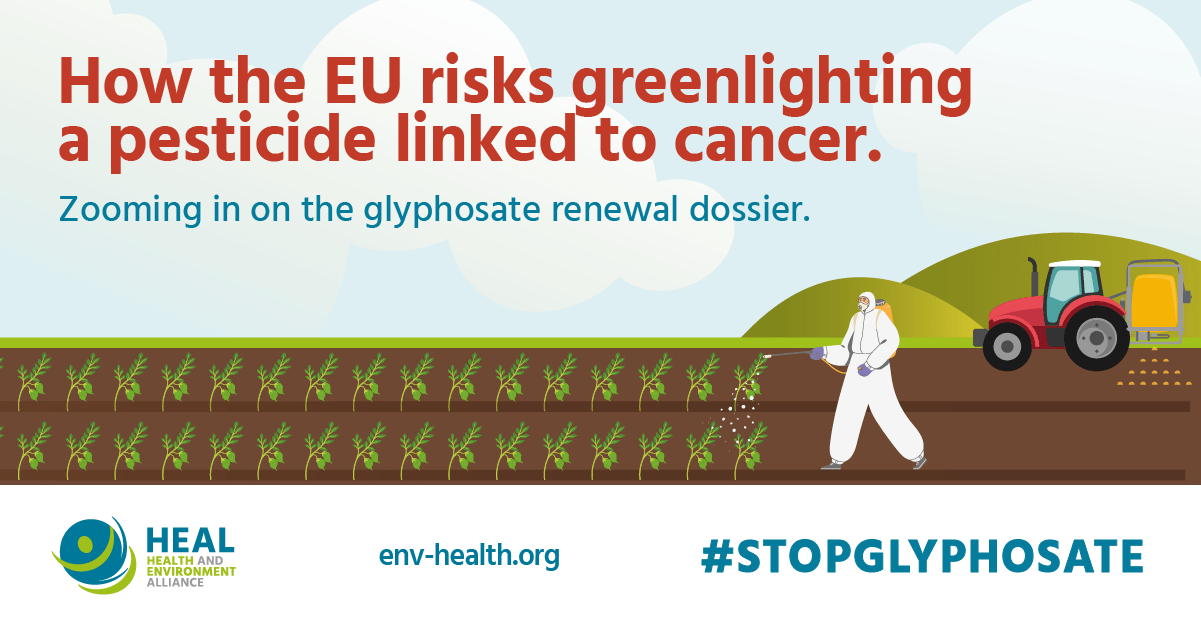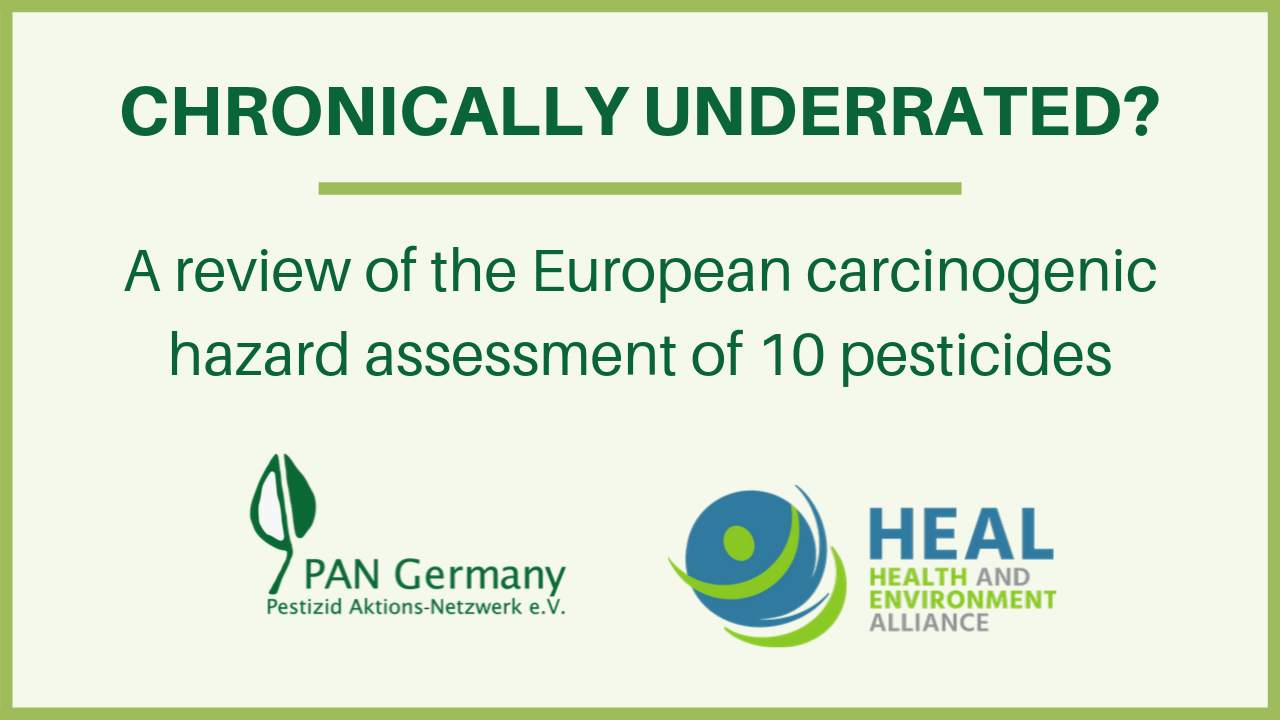European agriculture is pesticide-intensive, relying on the use of numerous hazardous pesticides that can damage both human health and the environment. Pesticides in our food, water, and air can increase the risk of health problems such as cancer and infertility, harm children’s healthy development and disrupt our hormonal systems.
HEAL works with health groups, civil society organisations, and decision-makers to ensure the use of harmful pesticides becomes a thing of the past.
Green 10 letter to the President of the European Parliament calling to address the climate, biodiversity and pollution emergency
26th July 2024
The Green 10 coalition, which HEAL is a part of, encourages the President of the European Parliament Roberta Metsola upon her re-election to put the climate, biodiversity and pollution emergency at the forefront of her tenure.
Green 10 letter to the President of the European Commission on upholding and scaling up Green Deal commitments
26th July 2024
The Green 10 coalition, which HEAL is a part of, encourages the EU Commission President to prioritize and scale up the Green Deal commitments towards zero pollution, thriving nature and health.
Letter: Protecting people’s health against climate, environmental threats and reducing health economic cost
16th July 2024
HEAL has sent a letter to Members of the European Parliament urging them to commit to protecting health against climate, environmental threats in the next five years, in their positions on legislative proposals as well as in all budgetary and financial decisions.
FREIA research project reveals recommendations for strategies to protect women’s health against endocrine disrupting chemicals
10th July 2024
Following five years of research, the EU-funded research project FREIA has published recommendations for health promotion strategies and EU-wide policy action to reduce exposure.
Joint letter to European Commission President- and Secretary-General to keep DG SANTE’s lead for EU pesticide regulation
9th July 2024
Pesticide Action Network Europe sent a joint-letter with over 80 organisations, among them HEAL, to President of the European Commission Ursula von der Leyen and Secretary-General of the European Commission Ilze Juhansone, calling them to keep the competence on pesticides within DG SANTE.
Ten pathways for better health 2024-2029
7th July 2024
With the new EU strategic agenda, and policy cycle to 2029, European Union decision-makers can choose the path to better health, by recognising the urgency to act and adopting environmental and climate policies that accelerate the necessary transformation in this decade.
Q&A on animal testing and chemical safety assessments
27th February 2023
We are exposed to a wide mix of potentially harmful chemicals on a daily basis. To assess whether and how exposure to chemical substances can impact our health and the environment, European and national regulatory authorities rely on the results from several testing methods, including animal testing, when performing their safety assessment. In this Q&A, HEAL answers several key questions about the use of animal testing in the European Union.
Pesticides and Health Impacts / Pestisitler ve Sağlığa Etkileri
26th January 2023
Pestisitlerin Sağlık Etkileri konusunda Türkiye sağlık sektöründen öneriler
Briefing: HEAL’s response to the public consultations on the EU’s initial assessment of glyphosate
3rd February 2022
This briefing outlines HEAL's response to two public consultations on the EU's initial assessment of glyphosate, and lists our key concerns about the EU assessment report on the toxicity of the pesticide.
Q&A on animal testing and chemical safety assessments
27th February 2023
We are exposed to a wide mix of potentially harmful chemicals on a daily basis. To assess whether and how exposure to chemical substances can impact our health and the environment, European and national regulatory authorities rely on the results from several testing methods, including animal testing, when performing their safety assessment. In this Q&A, HEAL answers several key questions about the use of animal testing in the European Union.
EU should ban brain-harming chlorpyrifos to protect health
1st August 2018
Today, the Health and Environment Alliance (HEAL) together with Générations Futures, Pesticide Action Network Europe…
Infographic: The impact of harmful pesticides on people’s health and the environment
30th March 2023
To answer some of the most frequently asked questions regarding the impact of harmful chemicals on people’s health and the environment, the Health and Environment Alliance (HEAL) has launched a new easy-to-use infographic and supporting social media assets.
HEAL and European Cancer Leagues relaunch infographic illustrating how Europe can prevent cancer by tackling environmental pollutants
25th May 2022
To mark the start of the European Week Against Cancer 2022, the Health and Environment Alliance (HEAL) and the European Cancer Leagues (ECL) have teamed up to relaunch an infographic telling the story behind environmental cancer prevention.
Infographic: Europe needs to ban glyphosate to protect farmers, our health and the environment
16th March 2022
Glyphosate is the most widely-used pesticide in the world, despite its well-documented negative health impacts. A new infographic from HEAL explains why the EU must ban glyphosate without delay.
HEAL and European Cancer Leagues launch infographic illustrating how Europe can prevent cancer by tackling environmental pollutants
25th May 2020
To mark the start of the European Week Against Cancer 2020, the Health and Environment Alliance (HEAL) and the European Cancer Leagues (ECL) have teamed up to launch an infographic telling the story behind environmental cancer prevention.
Fact cards: Ban the toxic pesticide chlorpyrifos from our plates
17th June 2019
The chemical chlorpyrifos has serious negative effects on our health, especially for children. Yet it…
Green 10 letter to the President of the European Parliament calling to address the climate, biodiversity and pollution emergency
26th July 2024
The Green 10 coalition, which HEAL is a part of, encourages the President of the European Parliament Roberta Metsola upon her re-election to put the climate, biodiversity and pollution emergency at the forefront of her tenure.
Green 10 letter to the President of the European Commission on upholding and scaling up Green Deal commitments
26th July 2024
The Green 10 coalition, which HEAL is a part of, encourages the EU Commission President to prioritize and scale up the Green Deal commitments towards zero pollution, thriving nature and health.
Letter: Protecting people’s health against climate, environmental threats and reducing health economic cost
16th July 2024
HEAL has sent a letter to Members of the European Parliament urging them to commit to protecting health against climate, environmental threats in the next five years, in their positions on legislative proposals as well as in all budgetary and financial decisions.
Joint letter to European Commission President- and Secretary-General to keep DG SANTE’s lead for EU pesticide regulation
9th July 2024
Pesticide Action Network Europe sent a joint-letter with over 80 organisations, among them HEAL, to President of the European Commission Ursula von der Leyen and Secretary-General of the European Commission Ilze Juhansone, calling them to keep the competence on pesticides within DG SANTE.
Letter: Keep health in the scope of the EP’s ENVI Committee
1st July 2024
In a letter, HEAL urges Members of the European Parliament to keep the current scope of the Committee on the Environment, Public Health and Food Safety (ENVI) to protect health against the triple crises of climate change, pollution and biodiversity loss.
EU strategic agenda: Tackling pollution for healthy people, and a strong and secure Europe
25th June 2024
In a letter, HEAL urges EU Heads of State to include measures to tackle pollution for people’s health in their blueprint for the next five years of EU policymaking.
Worrying news for health: MEPs reject watered down and hollowed out pesticides law
23rd November 2023
Members of the European Parliament voted against the draft text for a Sustainable Use of Pesticides Regulation (SUR), following a substantial hollowing out of the draft law. This is worrying news for health.
Press note: Good and bad news for health as the ENVI Committee votes on pesticides
24th October 2023
The European Parliament's Committee on Environment, Public Health and Food Safety (ENVI), voted on the draft proposal for a Sustainable use of Pesticides Regulation (SUR) and the non-binding objection to the renewal of the widely used pesticide glyphosate. While the objection for non-renewal of glyphosate failed, the SUR was adopted, but in order to truly protect health more ambition is needed.
Press note: Health groups react to European Commission’s failed attempt to reauthorise glyphosate for 10 years
13th October 2023
Today, the European Commission failed to get enough support for its proposal to reauthorise the use of glyphosate, the world’s most widely used pesticide which is associated with risks of cancer and other health disorders, for another ten years.
Press note: EU government representatives to discuss glyphosate renewal 12-13 October
10th October 2023
On 12-13 October 2023, EU member states’ representatives convening in the European Commission’s Standing Committee on Plants, Animals, Food and Feed (SCoPAFF) are expected to discuss and potentially vote on the Commission’s proposal to renew glyphosate’s market license for a period of 10 years.
Press release – Victory for health: European General Court upholds ban for chlorpyrifos-methyl
4th October 2023
Today the General Court of the European Court of Justice ruled that the 2019 EU-wide ban of the organophosphate pesticide chlorpyrifos-methyl remains in force. This follows a legal case against the European Commission by Ascenza Agro and Industries Afrasa, manufacturers of the pesticide, which challenged the quality and the legality of the scientific assessment that led to the ban.
373 civil society groups urge leaders to take ambitious action to phase out world’s most dangerous pesticides
25th September 2023
373 civil society and Indigenous Peoples organizations from 74 countries urged leaders at a historic global conference to act with urgency to phase out Highly Hazardous Pesticides (HHPs), a particular group of pesticides that cause the most severe harm to human health and the environment and are considered too dangerous for use.
Scientific evidence of glyphosate link to cancer dismissed in ongoing EU assessment, new report reveals
8th June 2022
A HEAL report published today shows that scientific evidence that glyphosate is carcinogenic has so far been dismissed in the EU scientific assessment that will form the basis for the re-approval discussion of its EU market license.
Carcinogenicity assessment was flawed for 4 out of 10 pesticides, new report shows
21st October 2019
A new PAN Germany and HEAL review of carcinogenicity assessments of pesticide active ingredients shows 40 percent of them are not carried out in compliance with existing European guidelines, leading to possible continued exposure of farmers and consumers to cancer-causing pesticides. In 30 percent of the cases significant details were missing from the dossiers, raising uncertainties about how European authorities came to a conclusion.






